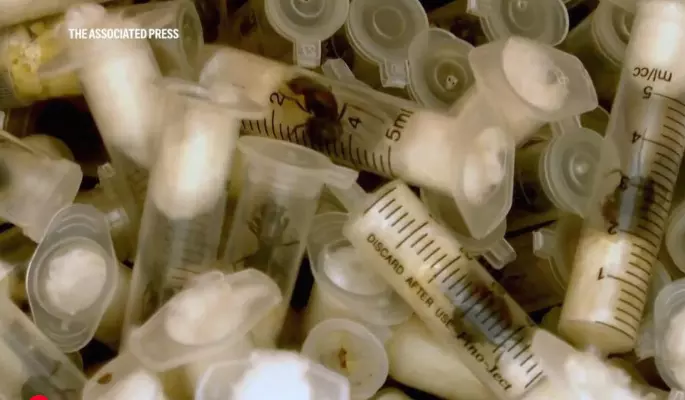Belgian Teens Charged with Wildlife Piracy in Kenya for Trafficking Ants
Two Belgian nationals face charges after being caught attempting to smuggle 5,000 ants, part of a rising trend in trafficking lesser-known species.

Two 19-year-old Belgian nationals were charged in a Nairobi court on Tuesday with wildlife piracy after they were caught with thousands of ants, marking a rare case of trafficking involving smaller, lesser-known species. Lornoy David and Seppe Lodewijckx were arrested on April 5 in Nakuru County while staying at a guest house where authorities discovered 5,000 ants packed into over 2,200 test tubes. The tubes, filled with cotton wool to help the ants survive for months, were allegedly prepared for export to Europe and Asia.
Appearing visibly distressed in court, the two young men told the magistrate they were unaware that collecting ants was illegal and claimed they were doing it "for fun." They were comforted by relatives during the proceedings.
In a separate case, two other individuals — Kenyan Dennis Ng’ang’a and Vietnamese national Duh Hung Nguyen — were also charged with illegal trafficking after being found with 400 ants at their residences in Nairobi. The Kenya Wildlife Service (KWS) identified the ant species as Messor cephalotes, a distinctive red-colored harvester ant native to East Africa. KWS accused the four men of engaging in an underground wildlife trade, highlighting that the export of such species undermines Kenya's sovereignty over its biodiversity and robs communities and researchers of ecological and economic benefits.
“This marks a shift in trafficking trends — from iconic large mammals to lesser-known yet ecologically critical species,” the KWS said in a statement, noting that while Kenya has long battled poaching of elephants and rhinos, attention must now turn to protecting all forms of biodiversity.
Kenyan authorities estimated the value of the seized ants at 1 million shillings (approximately $7,700). Experts say ant prices vary significantly depending on species and destination markets. Philip Muruthi, vice president for conservation at the African Wildlife Foundation, stressed the ecological importance of ants, calling them “key enablers of healthy forests” by enriching soil and supporting food chains.
He also warned about the risk of cross-border disease transmission through unregulated wildlife trade: “Even if there is trade, it should be regulated. Nobody should be taking our resources just like that.” The cases remain under investigation. Authorities are expected to push for stronger regulations on lesser-known species amid rising concerns over biodiversity theft.

